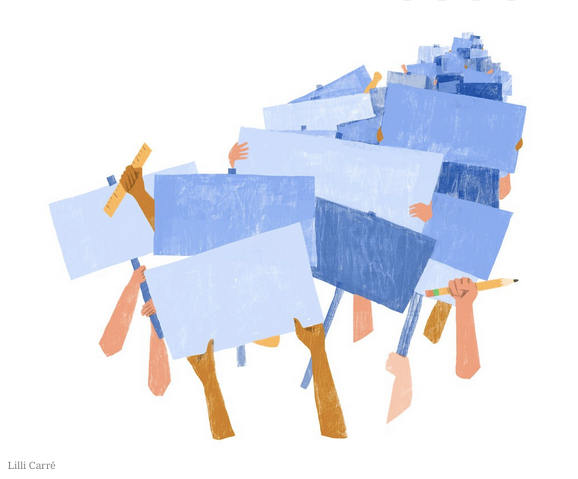As the organizer Mariame Kaba says, “Hope is a discipline.” That discipline is what sustains organizers who often grind away unseen for years. This is, most of the time, what unions and working people’s organizations do: make connections, and hope the sparks they light will catch and burn.
On Dec. 15, an estimated 50,000 people marched in the streets of Los Angeles alongside the nation’s second-largest local teachers’ union, United Teachers Los Angeles. These teachers are fighting not just for higher wages (though as for all the teachers recently on strike, theirs are unacceptably low) but also, and unapologetically, for racial and economic justice.
They serve, according to the union’s president, Alex Caputo-Pearl, a public school district whose student body is 95 percent minority and over 85 percent low-income. They’re fighting, they say, for the schools those students deserve — with nurses and counselors, arts funding, smaller classes and ethnic studies programs. They drew parents and students beside them into the streets, and onto the stage days later when they announced they would strike on Jan. 10 if those demands were not met.




